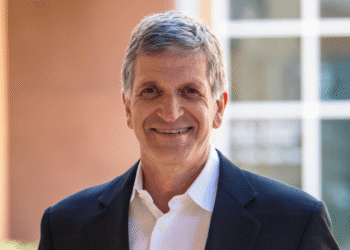In an interview with the ECPS, Professor Nic Cheeseman dissects the global resurgence of authoritarian populism and the uneven pathways of democratic backsliding. Warning against the “temporal fallacy,” he argues that crises unfolding simultaneously do not share a single cause—from Europe’s far-right surge to West Africa’s coups. Professor Cheeseman spotlights the twin pillars of democratic defense: resilient institutions and organized civic resistance. “In countries where institutions are weak, mass mobilization becomes absolutely critical—often the only mechanism left to stop populist or authoritarian leaders from consolidating power,” he says. Citing Ghana, Kenya, and Zambia, he urges context-specific democracy support that amplifies local strengths over one-size-fits-all templates.
Interview by Selcuk Gultasli
Giving an interview to the European Center for Populism Studies (ECPS), Dr. Nic Cheeseman, Professor of Democracy at the University of Birmingham, and the Director of the Centre for Elections, Democracy, Accountability and Representation (CEDAR), offers a comprehensive analysis of the global resurgence of authoritarian populism, democratic backsliding, and the vital role of civic resistance in fragile democracies. As a signatory of the June 13, 2025, anti-fascist declaration, Professor Cheeseman warns against the normalization of exclusionary, illiberal politics and highlights the need to rethink strategies for safeguarding democracy in the 21st century.
Professor Cheeseman emphasizes that democratic decline is not uniform but highly context-specific, urging caution against what he calls the “temporal fallacy”—the assumption that simultaneous crises share common causes. While far-right populism is reshaping politics in Europe, democratic erosion elsewhere often follows different patterns, such as military coups in West Africa or institutional capture in Latin America. “What we’re seeing is a highly complex set of processes pushing countries away from democracy, but these processes do not necessarily share a common underlying theme,” he explains.
A central theme of the interview is Professor Cheeseman’s analysis of the relationship between institutional resilience and mass mobilization in resisting authoritarianism. Drawing on Afrobarometer data and recent case studies, he underscores that strong institutions remain the first line of defense against creeping autocracy. However, in contexts where institutional capacity is weak, civic resistance becomes decisive: “In countries where institutions are weak, mass mobilization becomes absolutely critical—often the only mechanism left to stop populist or authoritarian leaders from consolidating power,” Professor Cheeseman asserts.
This argument resonates particularly in African contexts, where frustration with democratic performance—stemming from economic hardships, governance failures, and elite corruption—has fueled coups and populist takeovers. Yet, Professor Cheeseman points to inspiring counterexamples like Kenya, Ghana, and Zambia, where citizens have mobilized successfully to safeguard democratic norms. In Zambia, for instance, “hundreds of thousands of citizens turned out to vote, even believing the election wouldn’t be fully free and fair, because they knew collective action could bring political change—and it did.”
Professor Cheeseman also critiques “one-size-fits-all” democratization strategies, urging international actors to develop context-specific approaches grounded in local realities, civic strengths, and the dynamics of populist narratives.
Overall, the interview highlights Professor Cheeseman’s central thesis: defending democracy requires a dual strategy of institutional strengthening and societal mobilization. Where one falters, the other must rise.


